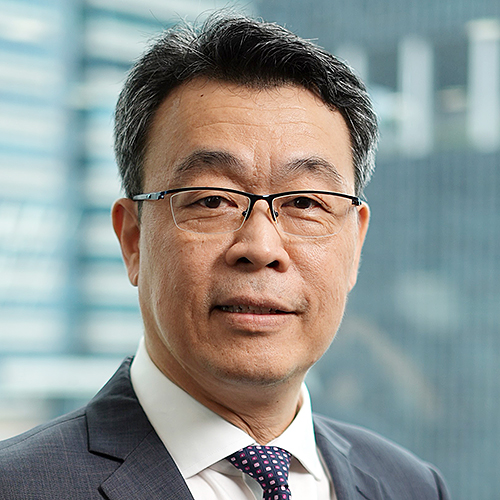Among 58 countries and other jurisdictions with important virtual asset activities, Vietnam and the Seychelles are complying the least with international steps to regulate providers of virtual asset services.
In the first study of its kind, the Paris-based Financial Action Task Force (FATF) – the world’s money-laundering and terrorist-financing watchdog – ranked the jurisdictions based on steps taken so far.
The task force found that 52 of the 58 jurisdictions had either passed laws and regulations or prohibited the local establishment of virtual asset service providers.
"This is a positive step,” a task force spokesman says, noting that the 58 jurisdictions accounted for an estimated 97% of virtual assets worldwide.
‘Serious global implications’
"But given that virtual assets are inherently international and borderless, a failure to regulate virtual asset service providers in just one jurisdiction can have serious global implications,” he says.
Released on March 28, the study finds that such implications are "particularly concerning given emerging trends in this space”, notably with North Korea and ransomware incidents.
Recent reports raise “serious concerns about (North Korea’s) theft and laundering of hundreds of millions of dollars worth of virtual assets for financing the proliferation of weapons of mass destruction, enabling an unprecedented number of recent launches of ballistic missiles,” it says.
At the same time, "ransomware incidents have grown significantly in recent years, and ransomware payments are almost exclusively demanded in virtual assets”.
Although growth in ransomware incidents reportedly slowed last year, “the situation remains a serious concern. Terrorist groups, including ISIL, Al Qaeda and their affiliates, as well as ethnically or racially motivated terrorist entities, are also known to be increasingly using virtual assets,” the study says.
Moreover, illicit virtual asset addresses received an estimated US$24.2 billion last year, the task force says, citing the latest annual cybercrime report by Chainalysis, a New York-based blockchain data platform.
’Level playing field’
T. Raja Kumar, the senior adviser to Singapore’s Ministry of Home Affairs who currently chairs the task force, highlights the need to combat criminal abuse of virtual assets.
"Our goal is to establish a level playing field, globally, so that the industry is meeting its regulatory obligations, and reduce opportunities for criminals to abuse the sector,” Raja Kumar says.
In addition to outright bans on setting up virtual asset activities, other metrics measured in the study are risk assessments, licensing and registration, inspection and supervision, enforcement actions, and travel rules imposed on service providers.
Both Vietnam and the Seychelles were rated as “non-compliant" with a task force recommendation that was strengthened six years ago to address virtual assets and their providers.
Although Vietnam has conducted a risk assessment, it has not taken any other steps as of 2022. The Seychelles has also assessed the risks whereas work on prohibition, licensing and registration, and travel rules was “in progress” as of 2020.
Only one jurisdiction – the Bahamas – was found to be compliant (in 2022).
Between these two extremes were 22 “largely compliant” jurisdictions and 20 “partially compliant” ones along with a further 13 for which information was not available.
In the Asia-Pacific region, China, Indonesia, Japan, New Zealand and Thailand stood out as largely compliant. But Hong Kong, the Philippines and Russia were only partially compliant. Ratings were not available for Australia, South Korea, Malaysia or Singapore.
With the exception of Italy – for which a rating was not available – the G7 countries were largely compliant with Britain, Canada, France, Germany and the United States enjoying the same rating as Japan.
Among other big economies, Mexico was largely compliant, but Brazil, South Africa and Turkey were only partially compliant. Information wasn’t available for Argentina, India, or Saudi Arabia.
The 58 jurisdictions rated comprised all FATF members plus 20 jurisdictions with “materially important” activity in terms of virtual asset service providers.
These were identified based on trading volume and user base from data from January to December 2022. The study cross-checked these against data from Chainalysis and two other American blockchain analysis firms – Lukka and TRM Labs.
‘Snapshot in time’
“It is important to note that large-scale trend data related to virtual assets is difficult to obtain, incomplete, and may change rapidly,” the task force says. Still, the rankings provide a “snapshot in time” of jurisdictions, it adds.
The spokesman says the study aims to help regulate and supervise providers of virtual asset services to counter money laundering and terrorist financing.
A secondary aim is to help supervisors, regulators and the private sector "discern the status" of steps taken to carry out the recommendation strengthened in 2018.
But the spokesman also stresses that the rankings don’t assess measures to combat money laundering and terrorism financing. Nor are they related to the FATF’s other work in identifying high-risk and other monitored jurisdictions.
Among members of the Association of Southeast Asian Nations (Asean), Vietnam and the Philippines are both on the FATF “grey list” and subject to increased monitoring as of February.
Fellow Asean member Myanmar is on the “blacklist” of high-risk jurisdictions with Iran and North Korea. These are deemed to have “significant strategic deficiencies in their regimes to counter money laundering, terrorist financing, and financing of proliferation”, the task force says.
Founded by the G7 to counter money laundering in 1989, the task force expanded its work in 2001 to combat terrorist financing as well. Since 2019, it has had an open-ended mandate after originally operating under fixed terms.









